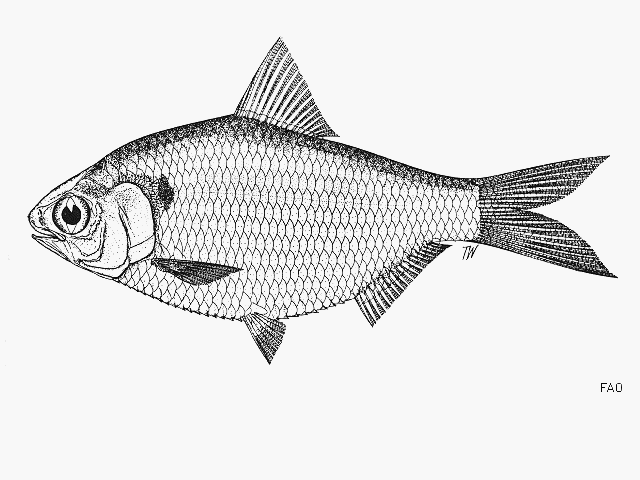| Dorosomatidae (Gizzard shads and sardinellas) |
| 18 cm SL (male/unsexed) |
|
pelagic-neritic; brackish; marine; depth range 0 - 50 m, anadromous |
| Indo-Pacific: Indian Ocean (northern part of Bay of Bengal, Andaman Sea at Phuket in Thailand), Gulf of Thailand, South China Sea. Also found in Indonesia (Ref. 7050). In earlier works, Anodontostoma chacunda was often misapplied to Anodontostoma thailandiae. |
|
Dorsal spines (total): 0-0; Anal spines: 0-0; Anal soft rays: 17-25. Body depth increasing with size. Second supra-maxilla paddle-shaped. Lower gill rakers 46 to 140; longest gill rakers on lower part of arch equal to or longer than corresponding gill filaments. Last dorsal fin ray not filamentous. Hind edges of scales toothed, the teeth wider than gaps between them; a median series pre-dorsal scales. A large dark mark behind gill opening. |
| Occurs inshore and probably entering estuaries. Its biology is probably similar to A. chacunda. |
|
Least Concern (LC); Date assessed: 28 February 2017 Ref. (130435)
|
| harmless |
Source and more info: www.fishbase.org. For personal, classroom, and other internal use only. Not for publication.

